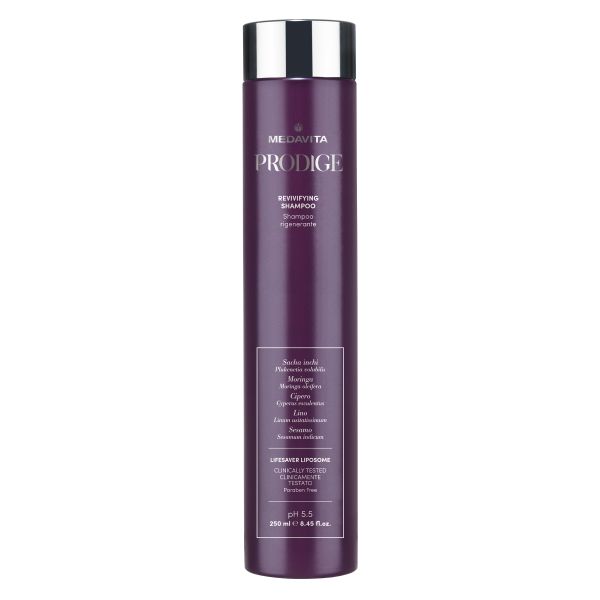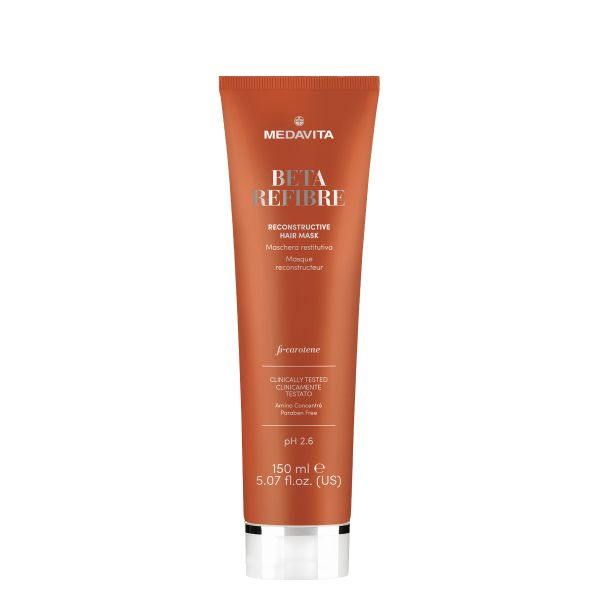
Hair care has always been a key part of beauty for both men and women.
However, although seeing and feeling our healthy, beautiful hair always leaves us feeling confident and good about ourselves, we don't always give it the attention it needs.
In our current moment in time, we can clearly see how self-care is becoming a positive aspect of our daily lives: we've learned to listen to and care for our bodies and our skin. But are we sure we're paying enough attention to our hair? That's right, hair also needs comprehensive, regenerative care. Many people don't know that they need to start taking care of their hair while they are still young, because the aging process is gradual. It begins to accelerate at different rates, depending on the amount of stress they've experienced over the years.
Let's start with the basics: in order to give our hair everything it needs, we need to know how to listen to it and better understand it.
Hair growth is made up of three phases of activity, which repeat to form a cycle. Within this period, each hair undergoes a different phase of the cycle, which is why we experience periods of intense growth alternating with periods of stasis or regression.
The first phase is the anagen phase. This is the period of growth, which lasts from 2 to 6 years, during which new cells constantly form within the bulb, and the hair grows an average of 0.4mm per day. The anagen phase is strongly influenced by hereditary factors as well as the individual's sex: on average, women experience longer anagen phases than men.
This phase is followed by the catagen phase, in which the hair enters a period of regression which lasts around two weeks. During this period, the bulb stops producing new cells, signalling the end of the hair's growth cycle. Before making room for a new hair to grow, the bulb undergoes its third and final phase, which is the telogen phase, in which the follicle is inactive for around 2 to 4 months. At the end of this phase, the hair is shed and replaced by the emergence of a new hair shaft.
A new anagen phase begins. However, each hair inevitably undergoes a number of other events throughout its life cycle, which can compromise its growth or integrity. These changes in the hair's life cycle can have thermal, environmental, or hormonal causes.In fact, pollution, UV rays, hair dryers or straighteners, and even stress can have major impacts on the anagen phase. These factors can significantly impede the growth phase, resulting in thinner, shorter hair. It's also important to note that hair loss can be physiological or pathological. In order to understand the underlying cause, there are specific tests that can determine the presence of any skin conditions, such as dandruff or seborrhoea, which may negatively impact hair growth. That is why women of all ages should take targeted action to support their hair's regeneration - or, in case of damaged hair, to take a reconstructive approach.
Regeneration and reconstruction are two terms that are often used interchangeably in everyday speech, but in reality, they are very different and respond to different needs.

To "regenerate”, from Latin, means to “grow anew”. It does not mean to start from scratch, but rather to restore vigour and fullness.
Hair regeneration involves reviving the hair's natural characteristics, restoring strength and vigour, and leaving it looking healthy and rejuvenated from root to tip. It is a sort of “armour” that protects the hair while also strengthening it, for extremely soft, luxuriously thick hair. Medavita offers the perfect tool for achieving these results: the Prodige line. Prodige is a comprehensive and intensive regeneration treatment that immediately revitalises and restores the hair's natural resiliency. Suitable for all levels of structural damage, it delivers targeted healing to the hair shaft.
The results: regenerated, soft, brilliant, and resilient hair in only four weeks.
The word “reconstruct” also comes from Latin, more specifically from the word “reconstruere” meaning “to build again”. Although this word has several uses., the underlying meaning remains the same: to put something back together after it has been destroyed. In archaeology, the term “reconstruct” means “to visually complete the architecture of an ancient building or monument, making conjectures about the missing parts based on the remaining ruins or available sources”. With its B-Refibre line, in a distinctive shade of bright orange due to the presence of B-carotene, a precursor of vitamin A and an excellent antioxidant with anti-free radical and anti-ageing properties, Medavita presents a solution for reconstructing damaged hair and restoring its structure. We know that the structure of our hair is mainly composed of keratin, and that this protein itself is composed of 19 amino acids. The eight amino acids that our body can make are its own are called essential amino acids. These include serine, threonine, and carbocisteine.
Amino Concentré is a complex that contains these three essential amino acids and delivers them deep into the hair. In the Beta Refibre line, Amino Concentré is actually accompanied by 3 other amino acids: glutamic acid produces glutamine, the most common amino acid in our body. Glutamine production decreases in adulthood, which is why supplementing it is key for stimulating hair growth. Arginine is a vasodilator, whose effects stimulate hair growth. Glycine supports keratin production.
Just as a large portion of our self-confidence depends on our hair, our hair's resilience, strength, and beauty mostly depends on us. So, make sure to take care of it!





Validate your login
Sign In
Registrati a "Medavita Salon Friends" e ricevi vantaggi e promozioni per i servizi in salone.
Create New Account